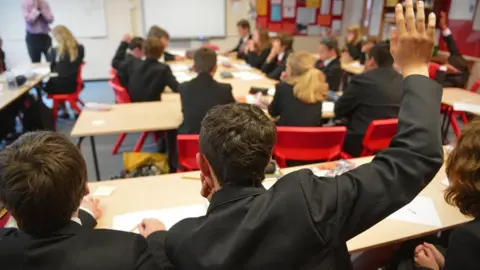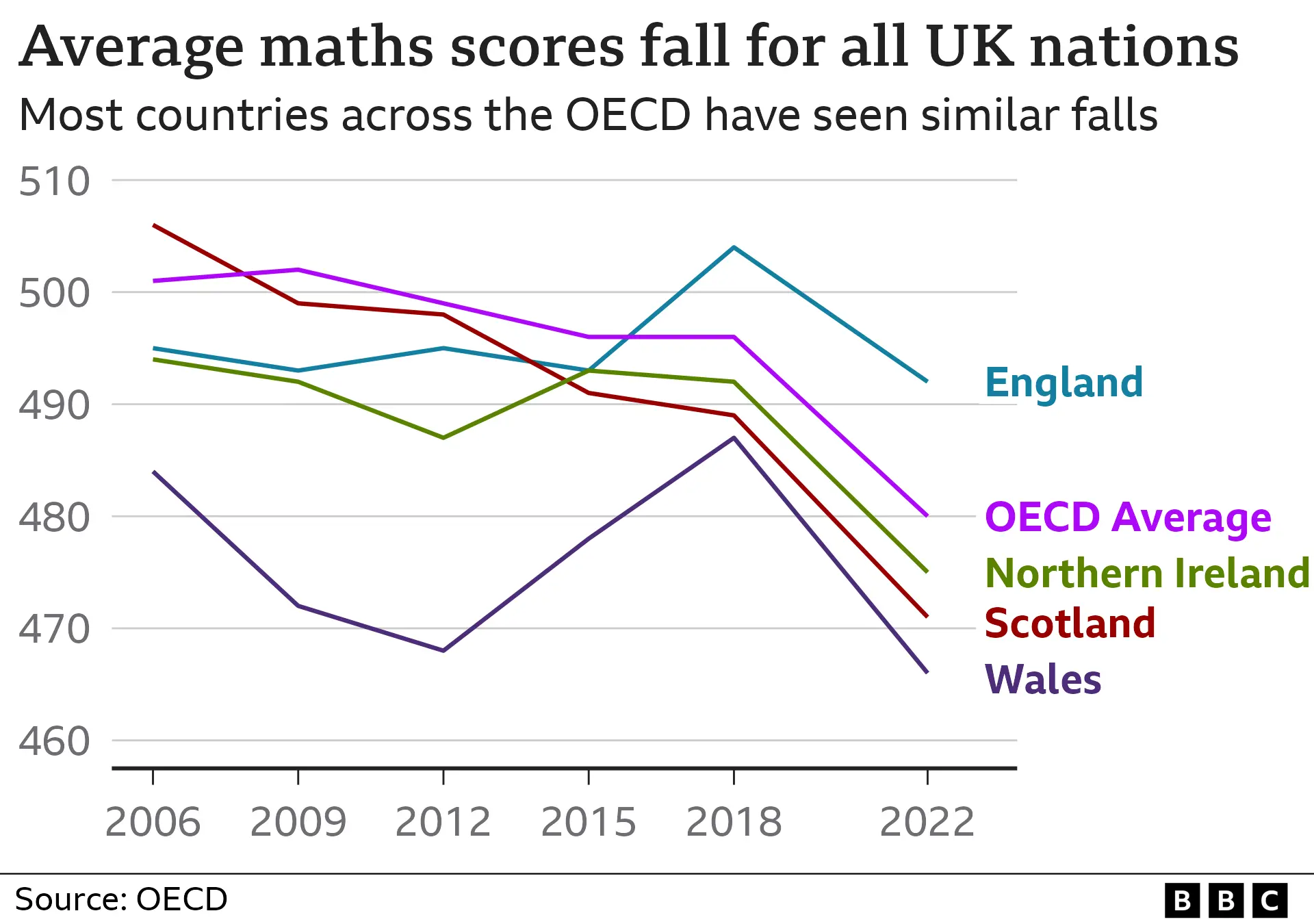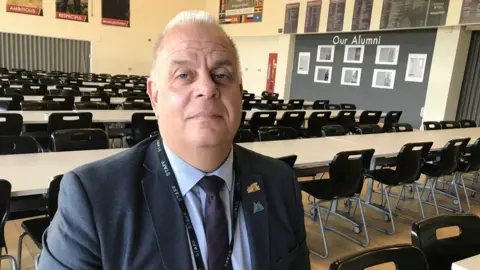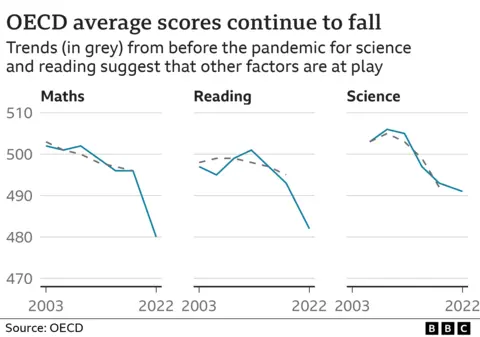High rate of UK teens skipping meals because of poverty, survey suggests
 Getty Images
Getty ImagesTeenagers in the UK are skipping more meals because of poverty than in many other Western European countries, a survey suggests.
In the UK, 11% of pupils told the Programme for International Student Assessment (Pisa) survey they missed a meal at least once a week.
The average across the Organisation for Economic Co-operation and Development (OECD), which runs Pisa, was 8%.
But the UK did make some progress in the educational rankings.
"Many parts of the world are experiencing a food crisis, with families struggling to put food on the table," the Pisa report says.
"Millions of students, including from some of the richest countries, are often struggling to get fed."
In Portugal, Finland and the Netherlands less than 3% of teenagers told the survey they had skipped at least one meal a week because of a lack of money, over the previous 30 days.
But this rose to:
- 11% in the UK and Lithuania
- 13% in the US
- 19% in Turkey
If pupils are hungry, the report points out, they are unlikely to learn as effectively.
Every four years, Pisa compares 15-year-olds' reading, science and maths levels across 81 countries and regions. And OECD education director Andreas Schleicher said the UK was "in a fairly good spot":
- 9th in reading, up from 10th in 2018
- 10th in maths, up from 13th
- 11th in science, down from 9th
These changes are marginal, however, as the difference between 10th and 21st place is statistically insignificant.
Among the UK's four devolved education systems, England was the highest performing nation across all three subjects.
The strong results showed the government had made real progress driving up standards in England, the Department for Education said.

"These results are testament to our incredible teachers, the hard work of students and to the government's unrelenting drive to raise school standards over the past 13 years," Education Secretary Gillian Keegan said.
With the results gap between UK nations widening, Wales, recording its worst results so far, remained the lowest performing across all subjects.
Welsh Education Minister Jeremy Miles said the Covid-19 pandemic had derailed improvement in literacy and numeracy.
Northern Ireland scored higher than Scotland in maths and science but Scotland outperformed Northern Ireland in reading.
'No shock'
This is the first time the OECD has run a second part to the study, focusing on wellbeing.
And Mr Schleicher told BBC News he was surprised to see the UK above the OECD average for food insecurity.
"You know, if you look among industrialised countries... the only country really that does the worse is the US," he said.
"I couldn't imagine in a wealthy country like the UK that so many young people at age 15 would skip a meal because there was no food."
But head teacher Jason Bridges said the figures were no shock.

More than two-thirds of his 975 pupils, at Cockshut Hill secondary school, in Birmingham, receive free school meals.
The school's trust has given pupils bedding, clothes, uniforms, and laptops - and Mr Bridges said none had been refused food.
"Schools are having to be responsible for a lot of other things," he said.
"There has been a massive rise in mental health issues - and other safeguarding issues are on the rise."

In all three subjects, the OECD average scores were lower than in 2018 - and this is only partly due to the pandemic, the Pisa reports says.
Maths scores were falling before 2018 in Belgium, Finland, France, Hungary and Iceland - and science and reading scores have been in decline since 2010.
Additional reporting by Saarah Nakhuda.
